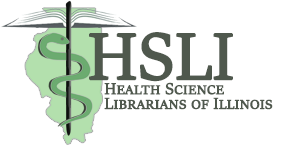(via Laurie Palumbo, West Chester University)
Please join us for the ACRL Technical Services Interest Group meeting, to be held virtually on Thursday, June 29, at 1:00 PM CDT. Register in advance for this meeting here. After registering, you will receive a confirmation email containing information about joining the meeting.
Presentations:
Promoting EDI: Targeted funding for collaborative projects
Gwen Gregory (she/her), Associate Dean for Collections Management, Kimberly Shotick (she/they), Student Success Librarian/Assistant Professor, Hao Phan (he/him), Southeast Asia Curator/ Associate Professor, Northern Illinois University
Abstract: The Libraries of Northern Illinois University have undertaken several efforts to promote equity, diversity, and inclusion (EDI) in their collections. During the 2022/2023 academic year, we tried several new collection related projects. One provided special funds for diversity audits and other diversity-related collection development projects. To participate, librarians answered a few questions about their project; applications were reviewed and approved by library administration. This presentation will describe the initiative and will detail two of the funded projects. One developed a new collection: Student Success and Well-Being, located in the Learning Commons area. In this project, the Student Success Librarian collaborated with student workers at campus cultural centers to increase library resources that support the success of students who have been historically marginalized in higher education. Another allowed the Southeast Asia Curator, who is also a published poet, to strengthen our library’s poetry collection. He used funds to purchase poetry by Asian-American authors and by Asian authors translated to English. Participants will learn about the genesis and design of the program, how technical services staff managed materials and reported on the project, and the results. Almost $10,000 was spent on seven projects in FY23. This was a successful collaboration, pairing the expertise of all librarians with the skills of acquisitions and cataloging staff to improve the library collection in a new way.
Assessing Open Access: Exploring Methods, Tools, and Challenges
Taylor Ralph (she/her), Collection Assessment Librarian, Oregon State University
Abstract: As Open Access (OA) content becomes more prevalent, both through publishers and other online resources, it is becoming increasingly important to assess that content and its relevance to our campus communities. We know that our researchers publish OA content, and our students use that content for their own studies, and this will only become more commonplace. While many libraries regularly assess subscription electronic resources through COUNTER compliant or other vendor data, gathering usage data for open resources is much more complicated. The absence of complete standardized data and a way to centrally gather that data may make this task seem daunting. However, there are tools that can be used together to get a full picture of OA content usage through subscription resources or through our catalog, which journals are publishing OA content, and where our researchers are publishing. Though some of these data gathering resources are proprietary, many of them are free or are low-cost. Join this presentation to learn more about the tools available and how they can be used to assess open scholarship.
Semi-automated catalog management: Making de-duplication a part of your eResources workflow
Katie Peterson (she/her), Metadata Librarian and Electronic Resources Cataloger, University of Iowa
Abstract: Given the volume of eResource usage and purchase, library collections are increasing in scale and acquisition processes are becoming more automated to ensure that the library catalog contains everything that patrons are entitled to. This results in catalogs containing more duplicate eResource records, a problem that can be difficult to identify and eliminate. At the University of Iowa Libraries, which uses Alma, the eResource team created a workflow that added medical textbooks to the collection immediately and made their Library Service Provider (LSP), Ex Libris, responsible for linking maintenance. This workflow led to duplicate records entering the catalog, and an additional step was needed to identify and remove the duplicate records. This was previously a manual process, but Peterson established a semi-automated system that detected duplicate records and simplified the process of eliminating them. In this presentation, Peterson will guide audience members through the workflow that she and her teammates established and demonstrate her method for removing duplicate records as they enter the catalog. This workflow is one example of how librarians have adjusted their procedures to maximize usage of their LSP’s central knowledge base while also prioritizing patron needs.
Thank you and we hope you can join us!
Laurie Palumbo – ACRL TSIG Convener
Dan Tam Do – ACRL TSIG Incoming Convener
